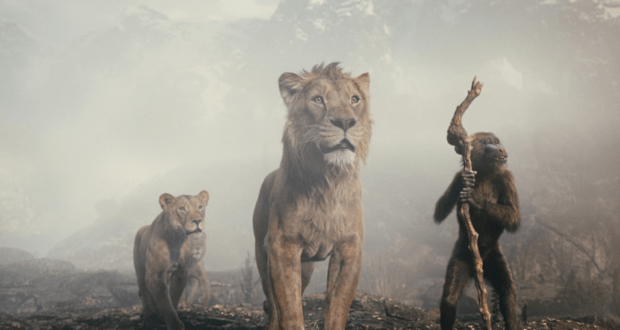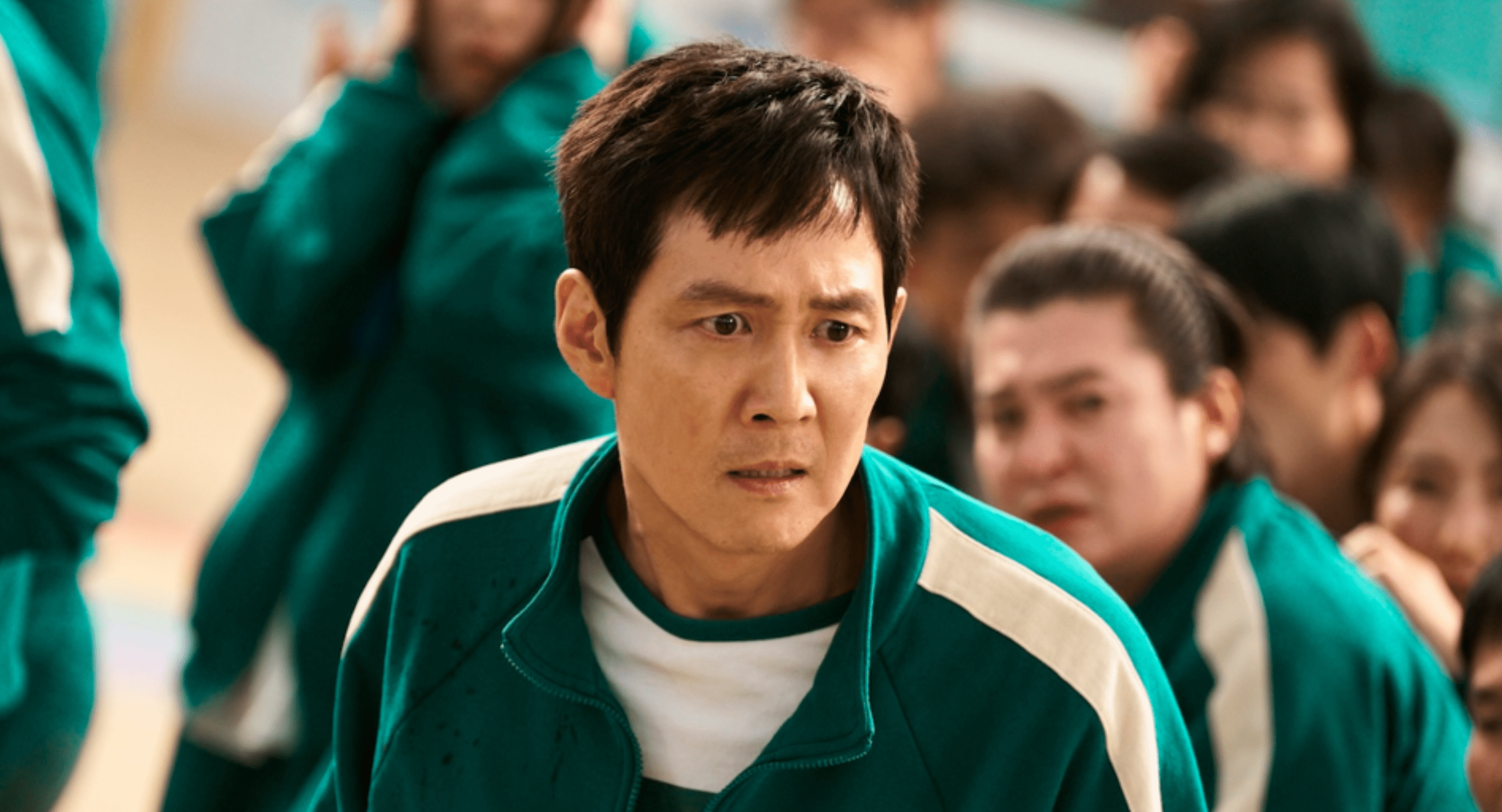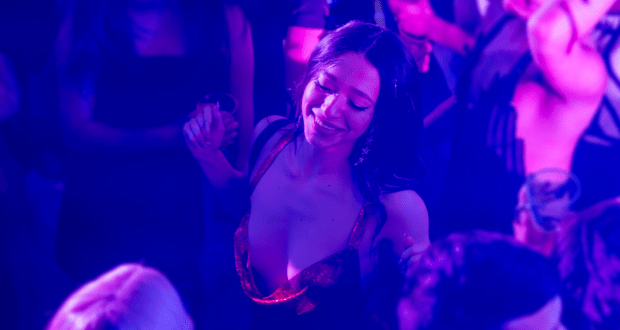While watching Mufasa: The Lion King, it’s nearly impossible not to sit there and wonder how it was directed by Barry Jenkins, the same man who helmed the extremely gripping, emotional, and moving Best Picture-winning Moonlight. It’s a gigantic disappointment from a filmmaker that we know is exceptionally talented.
This film was poised to provide a deeper, more meaningful look into the legendary character of Mufasa. However, what unfolds is a jarring, lifeless film that epitomizes everything wrong with modern blockbuster filmmaking: an over-reliance on photorealistic animation, a convoluted plot devoid of heart, and a blatant attempt to milk nostalgia for monetary gain.
Technological Brilliance, Emotional Void:
The photorealistic animation, as seen in the 2019 remake of The Lion King, remains technically impressive but emotionally inert. Every strand of fur, every ripple in the water, and every blade of grass is rendered with painstaking detail, yet the characters lack the expressiveness necessary to connect with the audience. Mufasa’s roars and Scar’s scheming should feel monumental, but instead, they come across as hollow and mechanical.
The lifelike animation strips away the charm of the original animated films. Moments that should evoke wonder or sorrow feel sterile, as if crafted by a team more interested in technological achievement than storytelling. The lush environments and dynamic action sequences feel devoid of purpose without characters whose emotions resonate.
A Bloated and Muddled Mess:
The narrative attempts to juggle two timelines—Mufasa’s origin story and Simba’s post-Lion King family life. This dual structure is clunky, with the transitions between timelines feeling forced. The framing device of Rafiki narrating Mufasa’s tale to young Kiara, while occasionally humorous thanks to Timon and Pumbaa’s interjections, ultimately undermines the gravity of Mufasa’s story.
The prequel portion—ostensibly the heart of the film—is weighed down by a convoluted plot filled with extraneous characters and overwrought conflicts. The inclusion of the Outsiders and their vendetta adds unnecessary complexity, dragging the pacing into a slog. Mufasa’s journey from outcast to leader should be inspiring, but instead, it’s bogged down by an overly long runtime and shallow characterizations.
Iconic Characters Reduced to Stereotypes:
One of the film’s most egregious failures is its treatment of Mufasa and Taka (Scar). Mufasa, a character defined by his wisdom and strength in the original films, is reduced to a bland protagonist with little emotional depth. His struggles and triumphs lack the resonance needed to elevate his journey.
Taka’s transformation into Scar—a potentially fascinating arc—is handled with all the subtlety of a sledgehammer. His jealousy of Mufasa is cartoonishly simplistic, and the decision to have him ally with the Outsiders feels contrived. This robs the character of the complexity that made him such an iconic villain.
The new characters, including the Outsiders and young Rafiki, are forgettable and fail to leave a lasting impression. Even beloved returning characters like Timon, Pumbaa, and Rafiki are relegated to mere comic relief, their charm diminished by weak dialogue and overused gags.
A Discordant and Forgettable Soundtrack:
For a Lion King film, the music should be a centerpiece. Unfortunately, Mufasa delivers a soundtrack that is neither memorable nor cohesive. The original songs feel generic, and the lack of emotional heft in their delivery makes them easy to forget. The inclusion of Beyoncé and Blue Ivy Carter could have been a highlight, but their contributions are overshadowed by uninspired songwriting.
The film’s score, while technically competent, lacks any sort of grandeur and heart. The musical sequences feel shoehorned into the narrative, failing to capture the magic of Elton John and Tim Rice‘s timeless compositions from the 1994 classic.
A Misguided Effort from Barry Jenkins:
Barry Jenkins, known for his emotionally rich films like Moonlight, seems ill-suited for this material. While his direction occasionally hints at deeper themes—brotherhood, forgiveness, and leadership—it’s buried under layers of unnecessary subplots and a lack of tonal consistency. Jenkins’ attempts to infuse gravitas into a story that demands a more whimsical approach result in a film that feels self-important and joyless.
Disney’s Nostalgia Machine:
At its core, Mufasa: The Lion King exemplifies Disney’s overreliance on nostalgia-driven content. The studio’s insistence on revisiting its animated classics with photorealistic remakes and prequels has resulted in films that are visually impressive but emotionally hollow. Instead of innovating or crafting new stories, Disney continues to repackage old ideas, offering diminishing returns with each installment.
This film’s failure to capture the magic of its predecessors is a stark reminder that technical achievements cannot replace strong storytelling and genuine emotional engagement.
Overall:
Mufasa: The Lion King is a soulless, bloated misstep that squanders the potential of its talented cast, director, and beloved source material. It is a film that tries to do too much yet accomplishes so little, offering a tedious and emotionally barren experience that lacks the heart and soul of its animated predecessors.
For audiences who hold the original Lion King close to their hearts, Mufasa is not just a disappointment—it’s an outright betrayal of what made the franchise special. Disney’s obsession with photorealism and endless franchising has resulted in a film that is best left unseen.
-
Acting - 3/10
3/10
-
Cinematography/Visual Effects - 1/10
1/10
-
Plot/Screenplay - 1/10
1/10
-
Setting/Theme - 1/10
1/10
-
Watchability - 1/10
1/10
-
Rewatchability - 1/10
1/10













